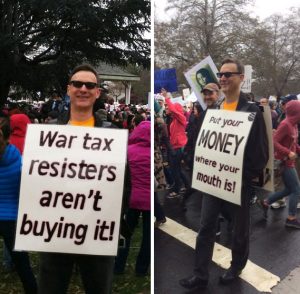An article about how climate change is going to impact federal spending caught my eye today. Mostly it got me vaguely thinking about how difficult it is to change — especially on the national scale. The article is about the Biden administration’s warning that climate change is going to cost the federal government a lot of money and planners and elected officials are not preparing for it.
 Of course, this has already been true for decades, and the article does not talk about shifting to emergency mode and doing everything possible to stop the climate crisis from getting worse. Plus, the administration has just presented another federal budget proposal that bulks up the Pentagon (the only part of Biden’s budget that is likely to pass), which can only makes things worse, both politically and for the climate. Change at that level seems pretty far off.
Of course, this has already been true for decades, and the article does not talk about shifting to emergency mode and doing everything possible to stop the climate crisis from getting worse. Plus, the administration has just presented another federal budget proposal that bulks up the Pentagon (the only part of Biden’s budget that is likely to pass), which can only makes things worse, both politically and for the climate. Change at that level seems pretty far off.
So I was also thinking about change on the personal level. In a city surrounded by luxury this and luxury that, Ed and I live a pretty modest lifestyle, although there is too much plastic still coming into the house, those out-of-season blueberries are hard to pass up, and well, the car…. So in my mind I balance it off with being active working for fundamental change, but I do credit the war tax resistance network with saving me from a more luxurious lifestyle too. Meeting so many refusers who have chosen to live on very low incomes and learning about how they do it has been enlightening and challenging.
So all this kind of reminds me of the NWTRCC meeting 20 years ago where I started my 15 years as NWTRCC Coordinator. It was a wonderful conference in Santa Rosa, California, in May 2003. Sonoma County Taxpayers for Peace outdid themselves with a packed schedule, great food, an evening of music and entertainment, and a good crowd to fill the auditorium.
For some reason I was on a panel to talk about living below the taxable level in order to avoid supporting the military. This is not my method of resistance but I went over the basics of finding the taxable level and the various ways to manage life on a low income — living in community, bartering, keeping pay off the books as much as possible, living on cash. At the Q& A there was this annoying guy in the crowd who pretty much disagreed with everything I said and argued that people could live above the taxable level if they made use of tax credits and other options to bring their income down legally.
That was my introduction to David Gross, who handed out a paper on his “Don’t Owe Nothin’ Method”. So today, as I was thinking about how hard change is, I noticed the link to David’s new blog post with a detailed summary of how 20 years ago the invasion of Iraq changed his life. He threw himself into war tax resistance — and NWTRCC for many years (despite being somewhat frustrated at the inability of many of us to break some old habits).
So I end this with kudos to Dave for his ability to change and for his contributions to this eclectic network of individuals brought together to find ways to put their money where their mouth is. Be sure to read his blog and follow his Picket Line posts.
— Post by Ruth Benn






Right now I owe the IRS about $300,000 in resisted federal income taxes. This life in debt began in 2016 when I inherited $1 million when my dad died. I actually gave away a majority of that money partially by the direction of my dad in his will and partially through donations in lieu of the federal taxes I didn’t pay. I wouldn’t consider my living standards, exactly frugal since then. But I certainly don’t have any money for the IRS to seize although they did take a little bit out of my Social Security every month for a couple of years. I haven’t heard from them in over a year. My benefit from that inheritance was to be able to make a down payment on a life care place in town where I will be able to live when I can no longer safely live independently. I live in a loft in a condominium building in a revitalizing small city in central Virginia on the James River. I have a nice view of the river out my windows. I sold my car recently when I decided that I didn’t need it anymore so now I have my groceries delivered. I can walk to most of what I need near my Downtown home and can use the bus or Uber for longer in town trips. At the age of 77 I have still failed to ever be sent to jail for civil disobedience. I blew my one big opportunity so far in 1985 when the judge found in my favor in a case the justice department/IRS brought against me. I live on Social Security and the Virginia Retirement System. Not exactly simple living but a comfortable existence that occasionally makes me think I should work harder at poking the bear.